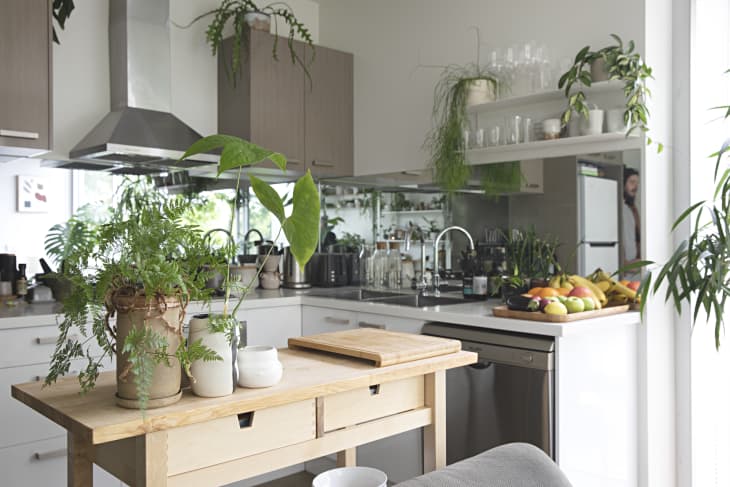The Best Plants To Have In Your Kitchen, According to a Chef

When shopping for houseplants, the kitchen often gets left out as a place to add some greenery. But there are benefits to having them around. Aloe vera, for instance, would not only make your counter look lively, but it also could treat burns. A spider plant, meanwhile, is a natural purifier, which makes it great for removing odors and fumes.
But perhaps the best argument for having plants in the kitchen is that you’d have fresh, healthy ingredients within reach—no need to go out to the garden. Here are the best plants (surprise, they’re all edible) you should have in your kitchen right now:
Sweet Basil
The most popular of more than 30 varieties, this particular basil can be used in Italian cooking like pizzas and pesto. It has health benefits too, such as fortifying the digestive system, remedying headaches, and detoxifying the liver, among others. And for those who don’t have a green thumb, chef Colene Tan of Cultivate by Coco says it’s the easiest kitchen herb to grow, as they are fast-growing and doesn’t mind being indoors.
Mint
Another easy-to-grow herb, mint won’t just mysteriously die on you like that succulent on your desk. There are several varieties, and Tan says you can use add them in your cocktail or iced tea. If you’re making curry, you can also use mint as an ingredient and garnish. Be sure to grow mint in its own container, though, or it will kill all other plants.
Rosemary
Rosemary—although a “hit or miss” when it comes to growing, according to Tan—is a versatile herb to have around. When placed on a stove alongside aa couple slices of lemon, it will leave your kitchen smelling fresh and clean. It’s also a flavorful herb, so it’s great when roasted with chicken, lamb, pork, fish, steak, and vegetables. And, if allowed to flourish, it can grow into a beautiful decorative bush.
Thyme
Thyme, despite looking delicate, is actually robust and does not require much attention. The eye-catching herb is commonly used to flavor savory dishes such as braised or roasted meats, fish, vegetables. You can also use add it in soups and stews, cocktails, and teas.
Oregano
Oregano is a drought-tolerant Mediterranean herb, so you won’t have to worry about watering it daily. Tan says that it works best with Italian cuisine, so use it along with basil to give your pizza and pasta that authentic flavor.